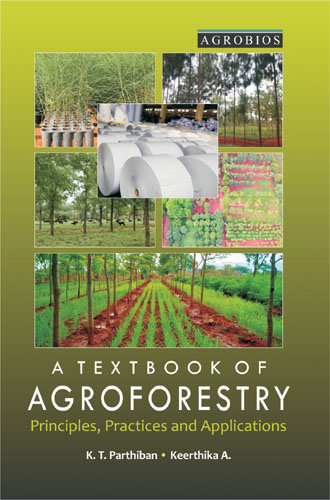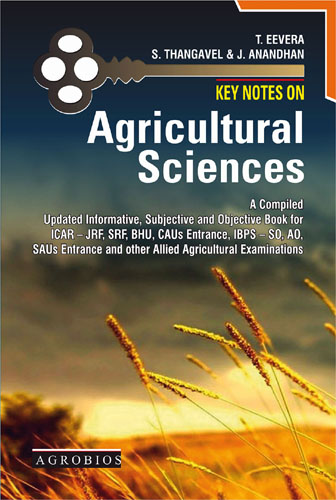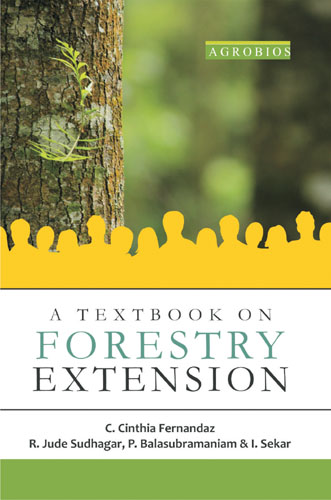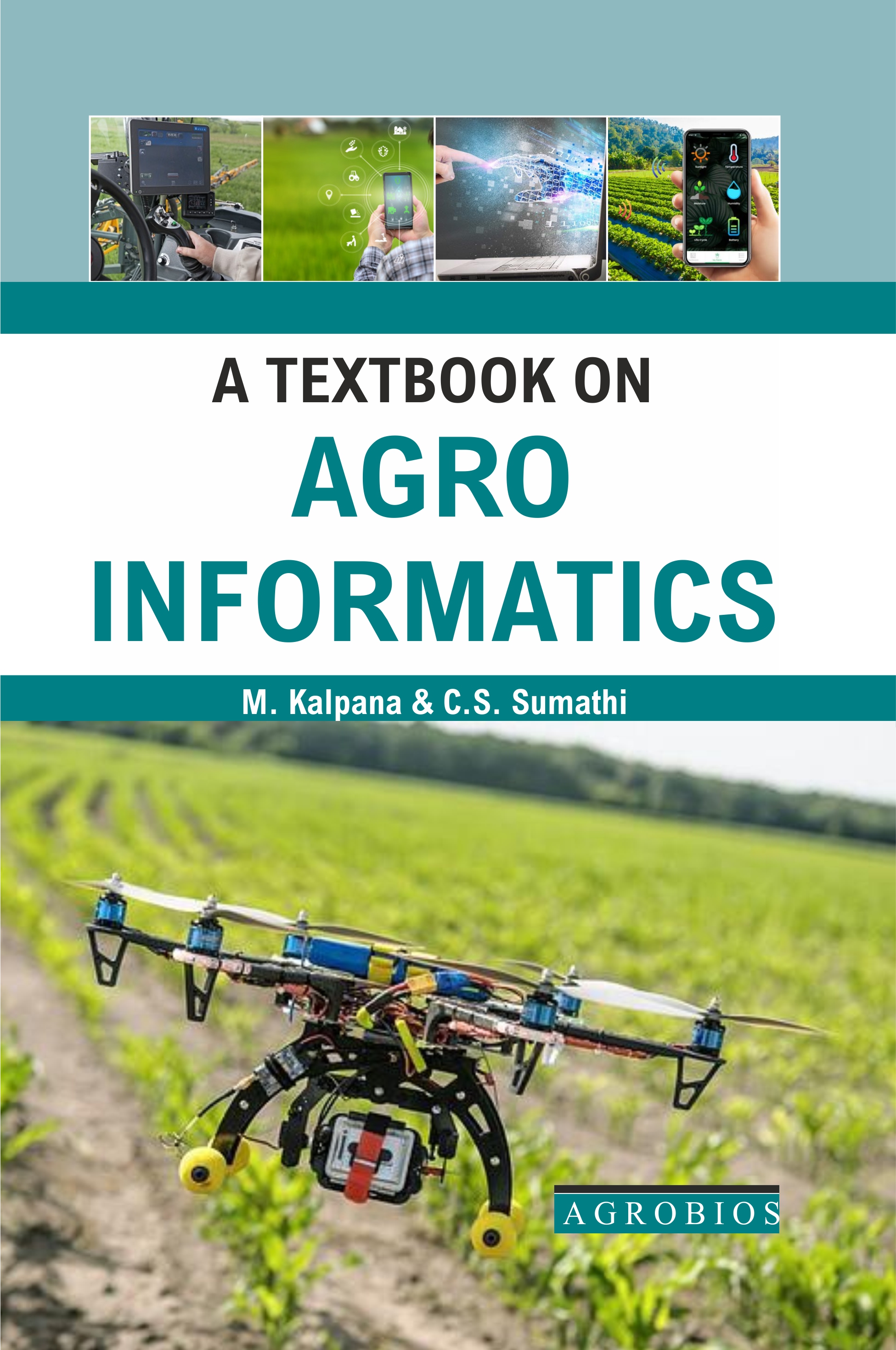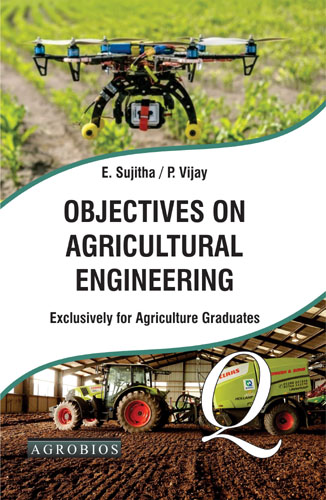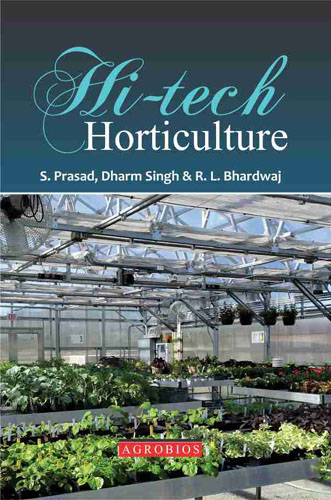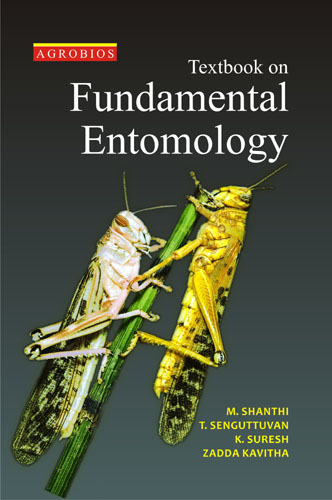Modern Weed Management (3rd Ed.) (pb)
This grossly updated and enlarged edition of Modern Weed Management is a unique review of the sample material that reflects the fast emerging issues in weed science research eg concerns about our environmental safety in the use of herbicides; the changing patterns of weed species dominance; the development of herbicide resistance in races within the weed species; genetic engineering leading to purposeful induction of herbicide resistance in crops; and the like. What sets this book apart from the other valuable ones on the subject is the fact that the entire research and development pathway is presented in an orderly manner, with proper brevity.
The ubiquitous and insidious nature of weeds, their persistent interference in agriculture and other affairs of man, their hardiness, and their distribution over different agro-ecosystems have been redefined with relevant examples in the initial four chapters of the book. This material is followed by enlarged enumeration of the elements of prevention and control of weeds, with their comparative advantages and limitations through chapters 5 and 6. These chapters now include also detailed account of the current weed control tools like bioherbicides, allelochemicals, herbicide resistant crops, and soil solarisation. Much emphasis has been given on the ecological aspects of reining the weeds through good crop husbandry in chapter - 7 as basic to all available weed management strategies in agriculture. The importance of tillage and other physical activities adopted for weed management have been emphasised in the subsequent chapter - 8. The chapter - 9 on the biological control of weeds is now much enriched with the added information and figures. The chapters 10 and 11 are devoted to an updated account of methods and means of application of herbicides, both on the crop and non-crop lands.
New herbicide molecules are piling up fast to give better weed and crop situation -oriented choices to the farmers. Attempt has been made to incorporate structural and functional features of all important new herbicides in use and testing in India in chapters 12 and 13. This is a rare bonanza of scientific material, collected from the latest research journals of worldwide importance. The neatly updated information on the physiological aspects of herbicides and their selectivity behaviour form the subject matter of chapters 14 and 15. These follow a new chapter 17 on the burning topic of development of herbicide resistance in weeds, worldwide. The subsequent chapters 8 to 20 deal with aspects like the role of adjuvants in herbicide usage, herbicide behaviour in soils including their protracted residues to affect sequential crops, and the influences of elements of environment on the activity and selectivity of herbicides.
The topic of weed management practices in field crops and vegetables, now available in chapter 21, has been entirely updated to include the latest herbicide recommendations to tackle the new weed problems. It is based on a meticulous collection of literature. So is true of the subsequent chapter - 22 on weed control in orchards, plantations, and grasslands. The non-selective control of weedy vegetation in chapter - 23 has been revised to describe its need and operation in the crop and non-crop situations, separately. The Chapter - 24 on the management of specific problem weeds has been greatly enlarged to embody the newly reported Invasive Alien Weeds from the south, along with some new lively figures.
Pesticide residues in our food is the talk of the day. The subject concerning this aspect of herbicides has been discussed in new chapter - 25 included in this third edition. The last two chapters of the book depict the impact of modern weed management technologies on several crop cultivation operations and the modem field research methodology with herbicides. Some fresh appendices have been usefully created, while some older ones are enlarged/ modified, to support fully the main text of the book.
This third edition of Modern Weed Management is a new trend setter which is anticipated to not only act as a text for the post-graduate students, but also as an exhaustive reference source for the teachers, researchers, and those interested in managing the wily weeds in a feasible, economical, and sustainable manner.
Dr. (Prof.) Gupta OP
Dr. O.P. Gupta was born on 19th September 1933 at Delhi. He obtained his Ph.D. degree in Agronomy from the Indian Agricultural Research Institute, New Delhi, with research specialisation in Weed Science in 1960.
Dr. Gupta started his career as Assistant Professor of Agronomy at the GBPAU Pant Nagar, now in Uttaranchal. He then shifted in 1961 to the erstwhile University of Udaipur, Udaipur, which was later reconstituted as the Rajasthan Agricultural University at Bikaner. In 1970, Dr. Gupta visited the USA for his Post-Doctoral work in Agronomy (Weed Science). The author again went abroad as Visiting Professor of Agronomy during 1976 to 1979. Upon his return he was offered Professorships at the Agricultural Universities in Himachal Pradesh, Gujarat, and Afghanistan. Dr. O.P. Gupta retired as Professor and Director Research from the unbifurcated RAU, Bikaner in 1993.
Dr. O.P. Gupta spent his academic lifetime pursuing research in weed science. He strongly professed the importance of ecological approach to weed management and need to use herbicides as complements, and not as substitutes, to the Good Crop Husbandry Practices in agriculture. Dr. Gupta published over 60 research papers on different agronomic aspects of weed science, including on aquatic weed management. Also, he directed great part of his life in teaching postgraduate courses in weed science and guiding his M.Sc. and Ph.D. students of Agronomy.
Dr. Gupta received his Lifetime Achievement Award from Indian Society of Weed Science in the year 2010. He has been for several years on the ICAR, New Delhi committees relating to weed science like the Research Advisory Committees and the Quinquennial Review Teams. He has also been on the selection committees of ASRB, New Delhi, both before and after his retirement from the university services.
Dr. Gupta continues to be active till date in promoting weed science through his books like the present one, besides having been the chairmen of vice chancellor search committee.
Table of Contents..
- The Weed Menace
- Weed-Crop Competition
- The Propagation: Dispersal and Persistence of Weeds
- The Classification and Distribution of Weeds
- Weed Prevention
- The Elements of Weed Control
- Weed Suppression through Good Crop Husbandry
- The Physical Control of Weeds
- The Biological Control of Weeds
- Diversity of Herbicides their Application Methods and Use Precautions
- Herbicide Application Equipment and their Calibration
- Important Herbicide Families and Molecules
- The Functional Features of Common Herbicides
- Herbicide Availability At the Action Sites in Plants
- Modes of Action of Herbicides in Plants
- Herbicide Selectivity Amongst Plants
- Herbicide Resistance in Weeds
- Adjuvants
- Fate of Herbicides in Soils
- Plant Environment and Herbicide Interactions
- Weed Management Practices in Field Crops and Vegetables
- Weed Control in Orchards: Plantations, Grasslands and Lawns
- Non-Selective Control of Weedy Vegetation
- Specific Problem Weeds and their Control
- Herbicide Residues in Food and Water
- Impact of Herbicides on Agricultural Technology
- Field Research with Herbicides - A Materials and Methods Outline
- Appendices
- Glossary
- Subject Index
- Addenda
Book Details
Book Title:
Modern Weed Management (3rd Ed.) (pb)
Modern Weed Management (3rd Ed.) (pb)
Book Type:
TEXTBOOK
TEXTBOOK
No Of Pages:
520
520
Color Pages :
0
0
Color Pages :
0
0
Book Size:
AMERICAN ROYAL (6X9)
AMERICAN ROYAL (6X9)
Weight:
850 Gms
850 Gms
Copyright Holder:
All Rights Reserved
All Rights Reserved
Imprint:
M/s AGROBIOS (INDIA)
M/s AGROBIOS (INDIA)
Readership:
FIELD WORKERS | PG STUDENTS | UG STUDENTS |
FIELD WORKERS | PG STUDENTS | UG STUDENTS |










